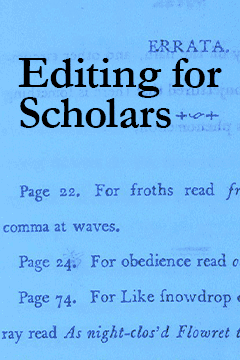Witness on the Mall: The Inauguration from Washington Monument
Witness on the Mall: The Inauguration from Washington Monument
Kazin: Inauguration from Washington Monument
WE HAD to be there, as the buttons stated, “to witness history.” In the days before the “Big Day,” friends anxiously worked their phones and the internet in hopes of securing an Inauguration ticket: gold, silver, purple, blue, press pass, whatever. Some wanted to get close enough to the west side of the Capitol to train a telephoto lens on the platform of fame.
My wife and I briefly considered joining the frenzy for credentials. Then we decided it was too much work and trouble. So we walked to a spot near the Washington Monument–about a mile from the Capitol. There, in cold but lovely sunlight, we watched the inaugural on a jumbo TV whose picture was clear enough and nearly large enough to grace a Big Ten football stadium. We were, it turned out, among the fortunate many.
Closer to the Capitol, thousands of unlucky ticket holders endured a series of bureaucratic bottlenecks and never reached their seats. They stood for hours in tunnels near the Mall or lined up behind concrete barriers, pleading with city police and security guards to let them get to their coveted places. “By the end, people were shouting and pushing,” one man told the Washington Post. “We waited until we heard them playing ‘Hail to the Chief,’ and then we knew we were too late. Those tickets were so sacred to us, and we never even got close.”
But those of us who congregated near the Washington Monument had a blissful day. Strangers joked with strangers and immediately came to the aid of any individual in the tightly packed crowd who needed water, a blanket, or room to stretch. We resembled a vibrant congregation, one as integrated as any in the nation. Hardly anywhere did people of the same race cluster together, although, like the DC area itself, African Americans made up a majority of the crowd.
Regardless of the demographic mix, we responded in unison to most of the images on the giant screen. We booed Bush and Cheney (with a few savage chuckles at seeing the ex-veep in a wheelchair), gave Jimmy Carter a polite if muted cheer, laughed and applauded when the Clintons appeared, and went a little nuts at the first glimpse of the new first family. When Obama took the oath of office, the silence in the crowd was thrilling. Then, of course, we exploded.
At several points during the ceremony, our congregation felt very black and Christian. Save for a scattering of groans at his anti-gay reputation, Rick Warren was a popular man. A loud chorus of “amens” greeted his tribute, with its concluding paraphrase of Scripture: “We are so grateful to live in this land, a land of unequaled possibility, where the son of an African immigrant can rise to the highest level of our leadership. And we know today that Dr. King and a great cloud of witnesses are shouting in heaven.” Most of the crowd recited The Lord’s Prayer right along with him. Next, we all whooped as Aretha Franklin, in as a good voice as at any time since her glory days, made “America” sound like “My Precious Lord”–that classic gospel hymn which seconds before his murder Martin Luther King, Jr. urged a church musician to play.
Nothing in Obama’s address drew so joyful a response. But then, as all the pundits have remarked, it was not a joyful speech. Like many others in the crowd, I wanted Obama to thrill me as he did at the 2004 Democratic Convention or after the New Hampshire Primary or in Grant Park on election night. But on those occasions, he was a candidate stirring up or celebrating a movement. Now he had become the leader of the nation and, in a sense, of the entire world. So the tasks of insurgency and mobilization gave way to moral instruction: “What is required of us now is a new era of responsibility–a recognition, on the part of every American, that we have duties to ourselves, our nation, and the world, duties that we do not grudgingly accept but rather seize gladly, firm in the knowledge that there is nothing so satisfying to the spirit, so defining of our character, than giving our all to a difficult task. This is the price and the promise of citizenship.”
When the president finished speaking, I saw lots of satisfied nods and smiles. Then most of us started walking slowly away from the Mall, our conversations quickly drowning out Elizabeth Alexander’s stale and concrete poetry.
“Witness,” with its plural, sober meanings (visual, legal, and spiritual), was an appropriate word for what we did. Viewed from a small plane overhead, we probably just looked like a crowd of tiny people watching a big TV. But there was a serious purpose to our witness, and it is in such purposes that the possibility of a better world depends. Once in a while, witnessing a ritual of democracy can turn into a democratic experience.
Michael Kazin‘s latest book is A Godly Hero: The Life of William Jennings Bryan. He teaches history at Georgetown University and is a member of the Dissent editorial board.




